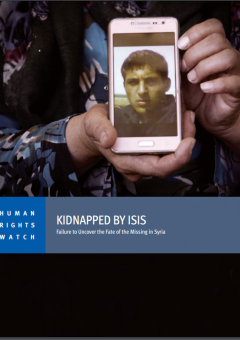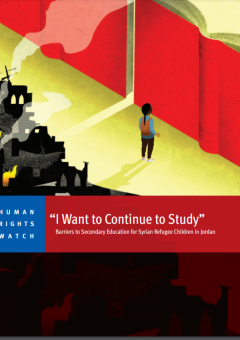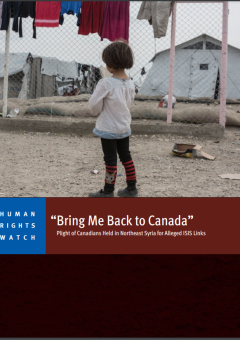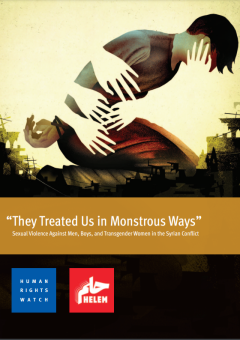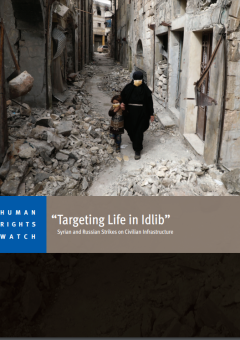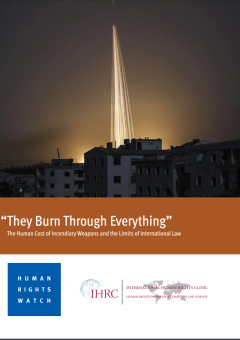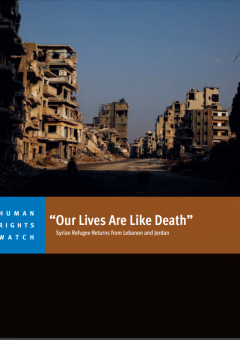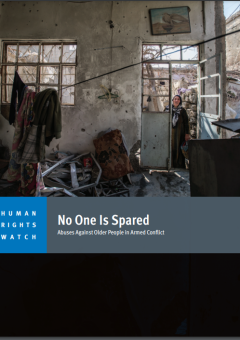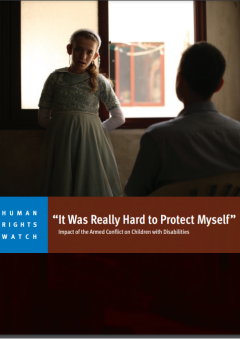The Islamic State’s (ISIS) expansion in Iraq and Syria featured horrendous public abuses. Largely unseen but equally egregious were the widespread detentions and kidnappings by the group –thousands of people snatched from their homes and cars and at checkpoints, who subsequently went missing. While the full scale of the missing
As the Syria conflict continues into its tenth year, Syrian refugee children in Jordan are confronting obstacles to education that grow more acute as they progress into secondary education. Every child has the right to a quality primary and secondary education. But only a quarter of secondary-school-age Syrian refugee children
More than one year ago, in March 2019, local fighters aided by a US-led, international coalition routed the Islamic State (ISIS) from the Syrian town of Baghouz, the last holdout of the group’s self-declared caliphate. In addition to capturing Syrians, the US-backed fighters, called the Syrian Democratic Forces (SDF), rounded
Since the Syrian conflict began in March 2011, men and boys and transgender women have been subjected to rape and other forms of sexual violence by the Syrian government and non-state armed groups, including the extremist armed group Islamic State (also known as ISIS). Heterosexual men and boys are vulnerable
In April 2019, the Syrian government and its ally, Russia, launched a major military offensive to retake Idlib governorate and surrounding areas in northwest Syria— one of the last areas controlled by anti-government armed groups. Over the next 11 months, the Syrian-Russian alliance showed callous disregard for the lives of
Over the past decade, the use of incendiary weapons, including white phosphorus, in Afghanistan, Gaza, Syria, and elsewhere has generated serious concerns for dozens of states parties to the Convention on Conventional Weapons (CCW). Many of these states call for strengthening CCW Protocol III, the only international instrument dedicated to
Syrian refugees who voluntarily returned to Syria between 2017 and 2021 from Lebanon and Jordan faced grave human rights abuses and persecution at the hands of Syrian government and affiliated militias, including torture, extra-judicial killings, and kidnappings. The majority of those interviewed by Human Rights Watch also struggled to survive
The older woman told Human Rights Watch that the first time government soldiers and militias came to her village in South Sudan in 2015, all civilians were subject to attack. “The old men and women who couldn’t run were killed,” she said. “There was Gatpan Mut, for example, who was
The conflict in Syria has been one of the deadliest in the world, killing at least 350,000 people over the past decade and forcibly displacing over 13 million. Widespread atrocities, extensive violations of international human rights and humanitarian law, and high humanitarian needs have characterized the conflict. Civilian infrastructure has

